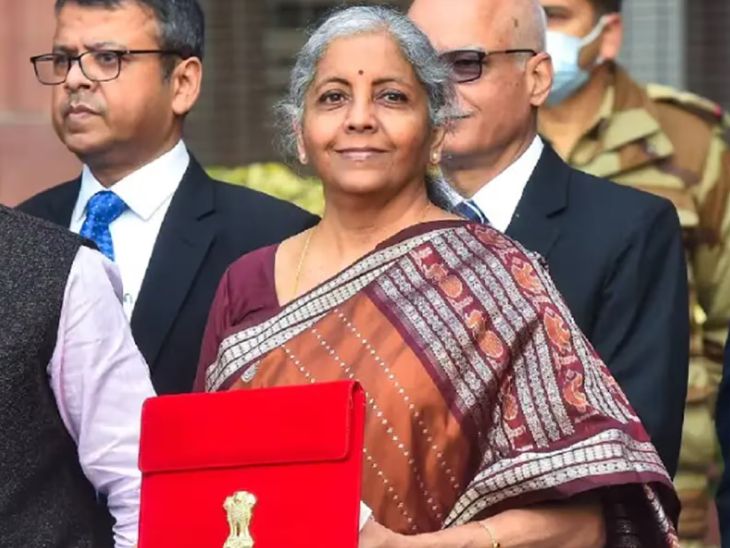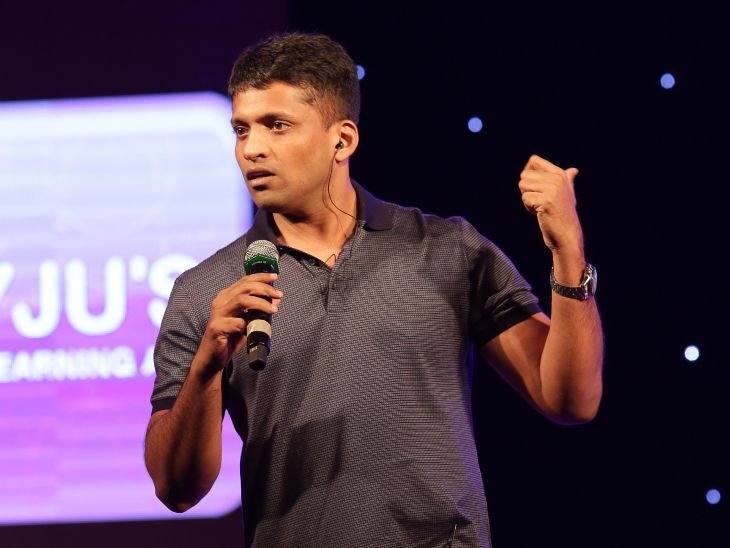New Delhi1 hour ago
- copy link

Finance Minister Nirmala Sitharaman has completed consultations with various stakeholders, including representatives of industry and social sectors, before presenting the Budget. After the formation of the new government, this time the budget will be presented on July 23. The interim budget was presented in February 2024.
For the last few days, Sitharaman was talking to stakeholders to prepare a roadmap. Multiple media reports said the finance minister has also received a wish list from BJP allies, Chandrababu Naidu-led TDP and Nitish Kumar-led JD(U).
The Finance Ministry said that the pre-budget consultation for the Union Budget 2024-25 started from June 19 and continued till July 5. During the consultation, Sitharaman assured those who shared suggestions that their suggestions would be considered while preparing the budget.
More than 120 people were called in 10 stakeholder groups
More than 120 people in 10 stakeholder groups were called for consultation. These include, apart from experts and representatives of farmer associations and agricultural economists, experts from trade unions, education and health sector, employment and skilling, MSME, trade and services, industry, economists, financial sector and capital market, infrastructure, energy and urban sector and Representatives were involved.
The President had said- Many big economic decisions will be taken in the budget session.
Last month, President Draupadi Murmu had said in Parliament that many historic steps and major economic decisions would be taken in the upcoming budget session. He had said. This budget will be an effective document of the government’s far-reaching policies and futuristic vision.
Nirmala Sitharaman will present the budget for the seventh consecutive time
Parliamentary Affairs Minister Kiren Rijiju had announced on Saturday that the budget session will be held between July 22 and August 12 and Sitharaman will present the budget on July 23. He told that on the recommendation of the Central Government, President Draupadi Murmu has approved it. This budget will be the first full budget of the new government.

Parliamentary Affairs Minister Kiren Rijiju gave information about the budget session on X.
This budget may focus on tax relief and farmers
- This budget may focus on giving tax exemption to the middle class, women empowerment, increasing the income of farmers and employment.
- Standard deduction limit may be increased from ₹50,000 to ₹1,00,000.
- Many announcements can also be made in defence, railways, infrastructure and renewable energy sectors.
- Can consider reducing the angel tax levied on startups.
- There is a possibility of a PLI scheme of ₹40,000 crore for electronics sub-assemblies and components.
- Amendments can be brought in Insolvency and Bankruptcy Code (IBC) 2.0.
- Andhra Pradesh may get a special package of Rs 1 lakh crore.
Interim budget was presented on 1 February 2024
Lok Sabha elections were to be held in April and May this year, hence the government had presented the interim budget on 1 February. Nirmala had focused her budget on the poor, women, youth and Annadata i.e. farmers.

Finance Minister Nirmala Sitharaman gave a 58-minute budget speech on February 1, 2024.
Nirmala will create a new record, Morarji Desai had presented it six consecutive times
Nirmala will become the first Finance Minister of the country to do so for the seventh consecutive time when she presents the budget on July 23. Earlier, Morarji Desai had presented six consecutive budgets. However, Morarji presented the budget maximum 10 times.
After him, P. Chidambaram and Pranab Mukherjee presented the budget 9 times, Yashwant Rao Chavan, CD Deshmukh and Yashwant Sinha presented the budget 7 times. Manmohan Singh and T. Krishnamachari have presented the budget 6 times.
Now understand the entire process of budget

1. First of all, the Finance Ministry issues a circular asking all the ministries, states, union territories, autonomous bodies to make estimates for the new year. Apart from giving projections for the new year, they also have to give details of last year’s expenses and income.
2. After receiving the estimate, top officials of the central government examine it. There is an in-depth discussion on this among the officials of the concerned ministries and expenditure department. The data is then sent to the Finance Ministry with recommendations.
3. The Finance Ministry, after considering all the recommendations, allocates revenue to the departments for their expenditure. The Department of Revenue and Economic Affairs contacts representatives of farmers and small businessmen and foreign institutional investors to gain an in-depth understanding of the situation.
4. In the pre-budget meeting, the Finance Minister meets the concerned parties to know their proposals and demands. These include representatives of states, bankers, agronomists, economists and representatives of employee organizations. After the pre-budget meeting is over, the Finance Minister takes the final decision on all the demands. The Finance Minister also talks to the Prime Minister before the budget is finalized.
5.Halwa ceremony takes place a few days before the presentation of the budget. Halwa prepared in a big pan is distributed among the staff of the Finance Ministry. With this the printing process of the budget begins. The officers and support staff involved in the process remain in the ministry until the budget is presented. The budget for this financial year was not printed and soft copies were given to the Members of Parliament.
6.The Finance Minister presents the General Budget in the Lok Sabha. Till 2016, it was presented on the last day of February. From 2017, it started being presented every year on 1 February. This year, for the first time, all budget documents were made available on Union Budget mobile.

What is full and interim budget? What is the difference between them?
The Union Budget is the annual financial account of the country. In other words, the budget is an estimated statement of the government’s earnings and expenditure for a particular year.
Through the budget, the government tries to decide to what extent it can spend in comparison to its earnings in the coming financial year. The government has to present the budget at the beginning of every financial year. The financial year period in India is from 1 April to 31 March.
Whereas the interim budget provides funds to the government to run the country until the general elections are decided and the full budget is announced after the formation of the new government. The term interim budget is not official. Officially it is called Vote on Account.




